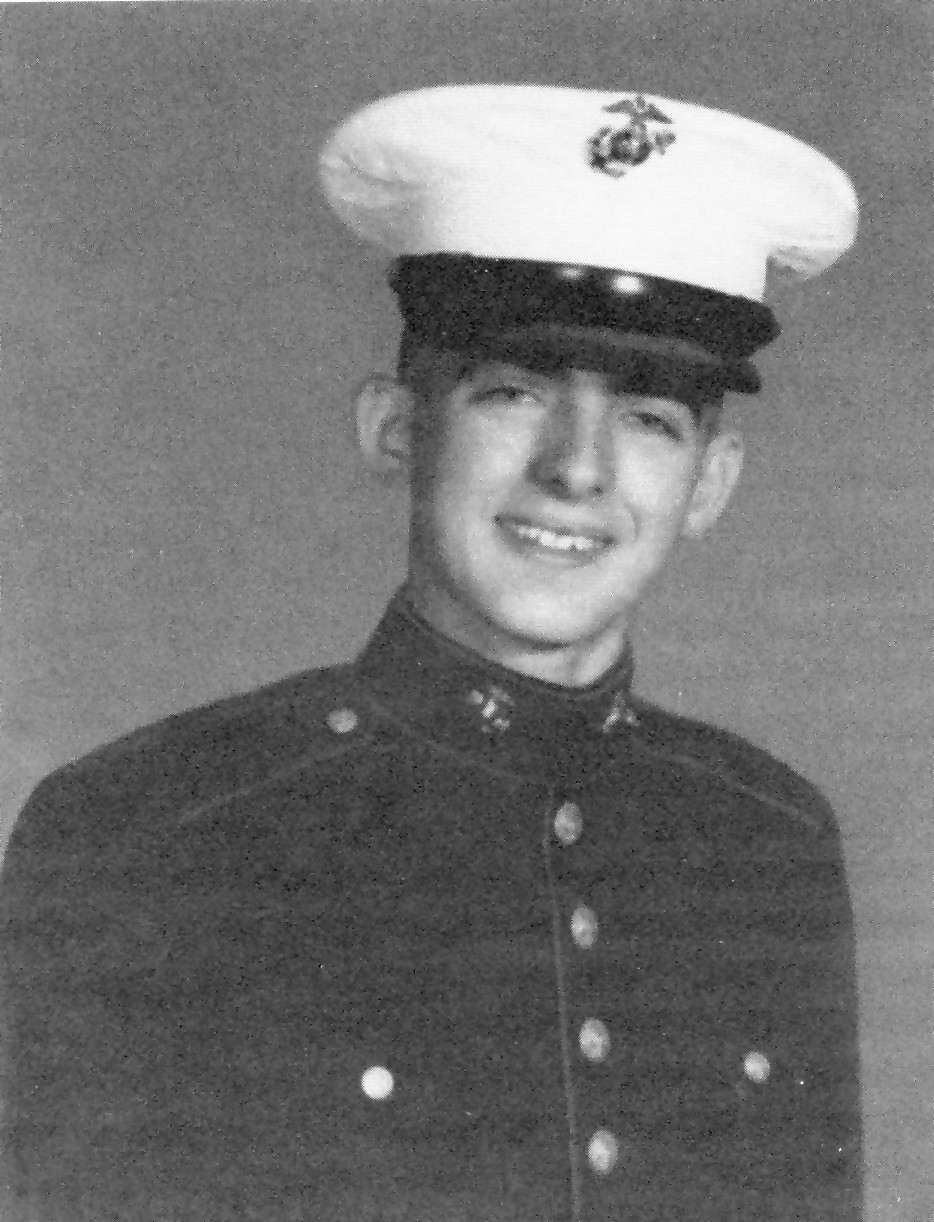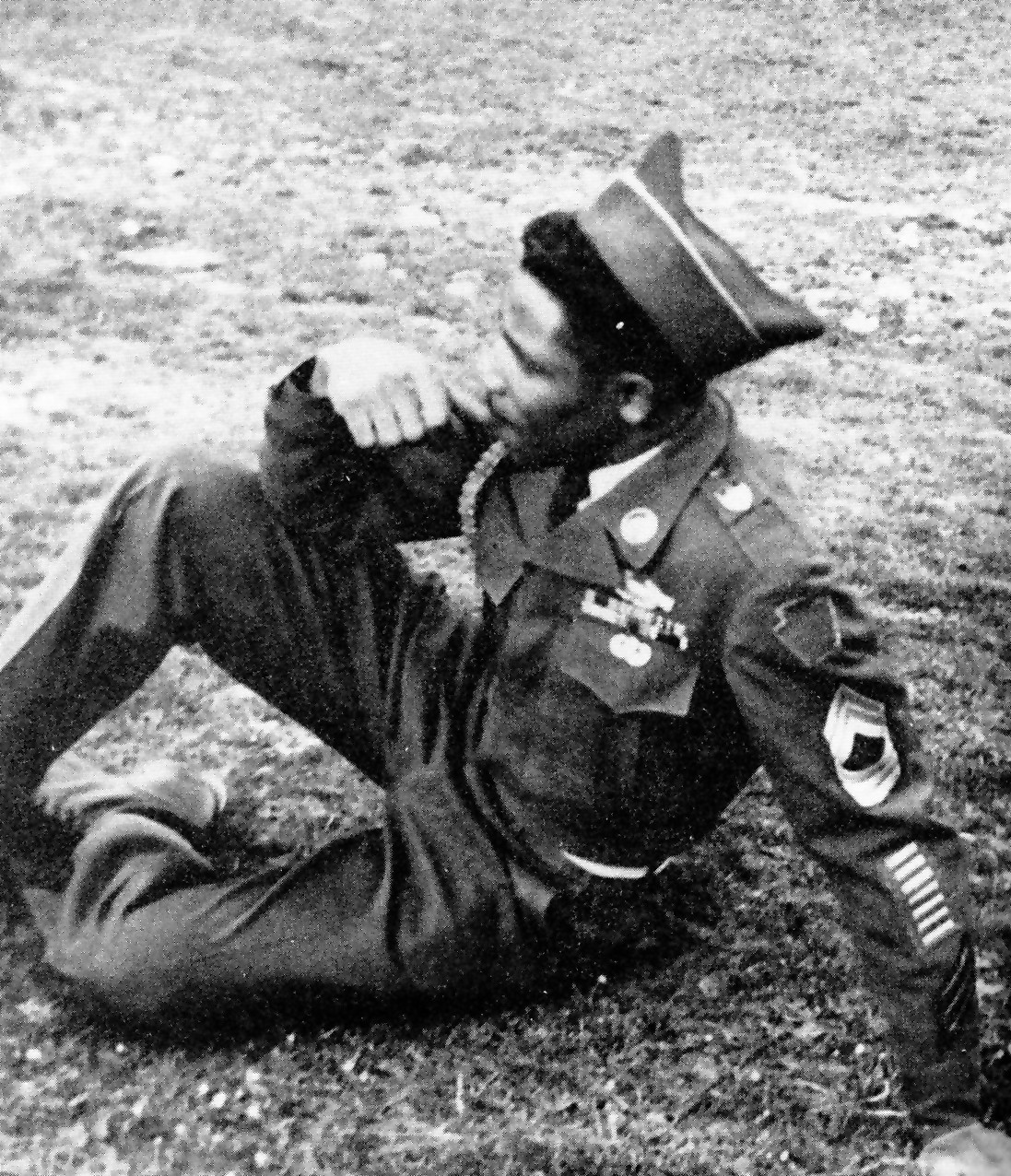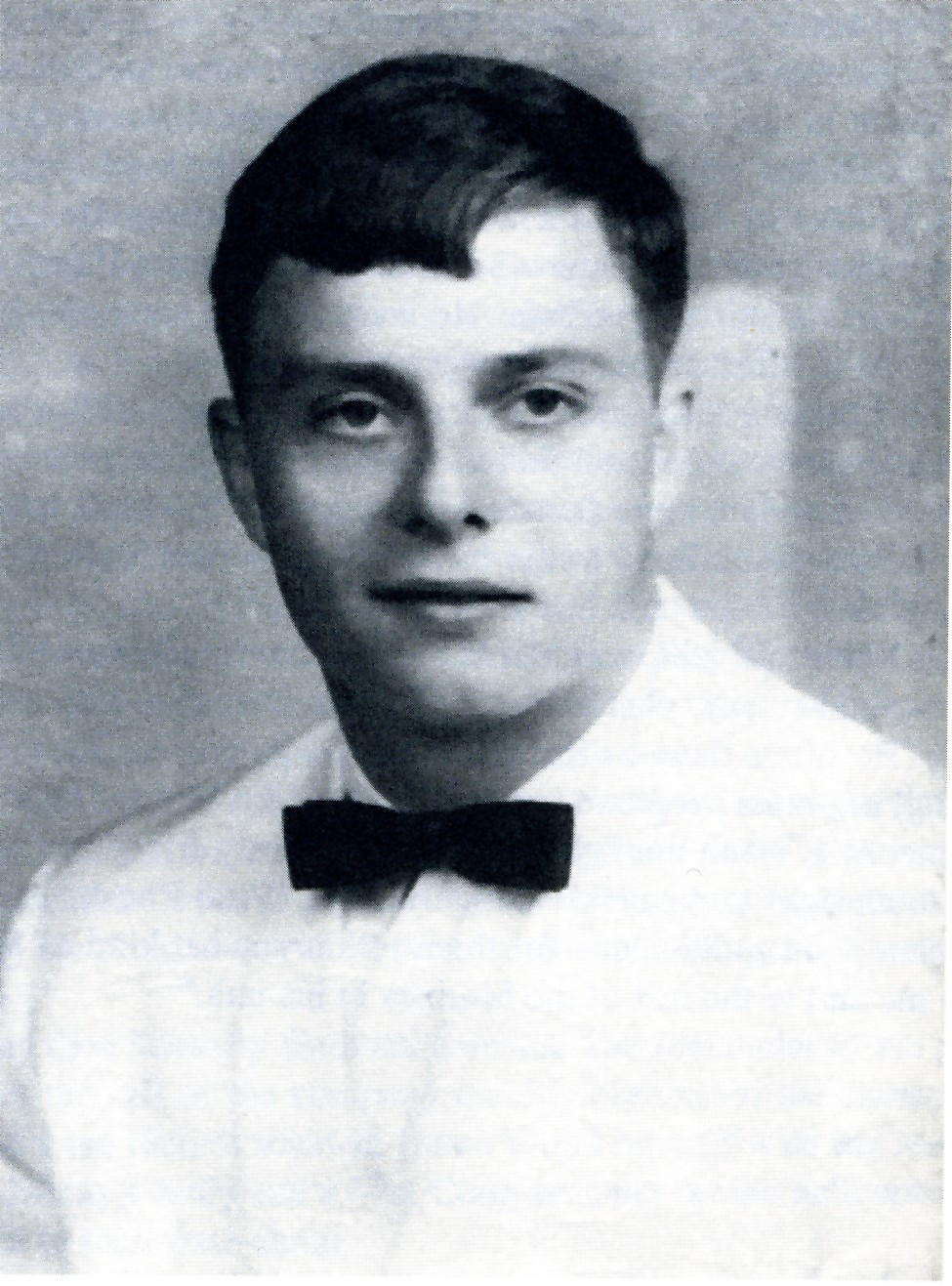
ROBERT E MONAHON - LCPL
- HOMETOWN:
- swedesboro
- COUNTY:
- Gloucester
- DATE OF BIRTH:
- February 15, 1947
- DATE OF CASUALTY:
- May 28, 1967
- BRANCH OF SERVICE:
- Marines
- RANK:
- LCPL
- STATUS:
- KIA
- COUNTRY:
- South Vietnam
Biography
Robert E. Monahon was born on February 15, 1947. His home of record is Swedesboro, NJ.
He served in the US Marine Corps and attained the rank of Lance Corporal (LCPL).
Monahon was killed in action on May 28, 1967.
Bobby
February 15, 1947 - May 28, 1967
LCPL, Marines Swedesboro, NJ
"He would ask for corn cob pipes and pipe tobacco," Mary Monahon, now living in Copperhill, TN, says. "He gave me the devil one time when I sent him a real good pipe because he would give them away to the Vietnamese he was serving with. Another time, I sent him the wrong kind of gumdrops. He wanted the miniature ones. He said he could get more of them inside his pockets. I still get goose bumps whenever I see them in stores."
Mary also remembers a promise her son made. "He was going to buy a house in North Carolina," she says. "Bobby loved the Marines and was going to make it a career. I was going to be his housekeeper. He told me that wherever he went, I would go with him."
There were five children in the Monahon household in Swedesboro, NJ. Bobby was the youngest. He was slightly built, with dark brown hair and blue eyes.
"A few thought he was a 'Mama's boy', but he wasn't." Mary continues. "He was a boy everybody liked and kind of mischievous. He thought very highly of me, I know that. And he was respectful to his elders. He was an altar boy at Saint Joseph's Roman Catholic Church in Swedesboro. If Bobby walked into your house, it was like he belonged there. He was at home everywhere. But he was not a spoiled brat, he made his own way." "All my kids were devilish but they were good kids," Mary says. "Bobby got into a scrap at Kingsway High and was going to quit altogether so I put him in a private school. He missed home so much and I told him the only way he could come home was to go back to school. So he went back to school. And then one Saturday, I came home from work and there's a Marine sitting in the living room. Bobby was determined to join the Marine Corps on his eighteenth birthday, which was the following Monday. I signed the papers that allowed him to leave for boot camp on that day."
On February 15, 1965, Bobby became a Marine. After training at Parris Island, SC, he was sent to Yorktown, VA and then Camp Pendleton, CA, to serve on the hospital ship, Repose. In August of 1966, he was sent to Vietnam and assigned to Company D, 1st Battalion, 9th Marines, 3rd Marine Division. He was stationed in Quang Tri, the northernmost province in South Vietnam.
Ben Baldwin of Staten Island, N.Y., was also a member of Company D. He served as Platoon Leader. "Bob was always smiling and laughing," he says. "He would seek me out to show me pictures of him on the hospital ship with his buddies and the nurses. He was a likeable person. We had a close friendship."
The Marines were the first combat troops to be equipped with the M-16 semi-automatic rifle. The weapons quickly became notorious for malfunctioning in the midst of battle. Critical parts were made of aluminum and subject to expansion due to the extreme heat generated by constant firing. The humid, tropical environment caused some problems; manufacturing faults caused others. Rifles jammed and lives were placed in even more jeopardy. Bobby wrote home and complained to his mother.
"I received a letter two weeks before he was killed," she says. "He said it may not help him because he was getting ready to come home. But it might help those who followed him. He wanted me to make public the fact that the M-16 rifles were unsuitable for use in muddy jungle conditions."
Mary turned the information over to New Jersey Congressman John Hunt, who was a member of the Armed Services Committee. The problem was already widespread and eventually solved with the use of steel instead of aluminum in the affected areas.
Mail was sometimes sporadic in Vietnam. Mary became an unwitting victim of Bobby's ire. "He wrote to me asking if had broken my arm," she remembers. "And then two weeks later, he said he got seven letters at one time."
"He believed in what he was doing," Mary says. "He told me to ignore all the anti-war stuff that was going on. He wrote that Americans forget their history and the fact that France helped us win the Revolution. He said it was better for the fighting to be going on over there, rather than here where we could lose everything."
The Navy Cross citation refers to an action of May 28, 1967, during an operation called Prairie IV in Quang Tri province. It contains phrases such as "exceptional courage and fortitude", "complete disregard for his own safety" and "extraordinary heroism". The award is the Navy's supreme honor for conduct in combat. Only the Medal of Honor ranks higher. The document tells of one platoon being dispatched to reinforce another that was involved in heavy fighting against a company of North Vietnamese Regular Army troops. It tells of one young man, Robert Monahon, giving his life to save others. Posthumously, he joined Garry Coyle from Clayton as Gloucester County's most highly decorated veterans of the Vietnam War.
The fighting intensified when Monahon's platoon came within one hundred yards of the beleaguered Marines when the 'point man' was suddenly hit. Bobby charged forward about thirty yards to pull him to safety. When he returned to his position, he saw two more Marines go down and scrambled with another Marine seventy-five yards to reach them. He was wounded by machine gun fire in the process. When he finally arrived, one Marine was already dead and the other seriously wounded. Bobby administered first aid to the Marine but could not move him. A nest with three enemy soldiers poured machine gun fire, grenades and satchel charges into the platoon's position. Bobby grabbed the dead Marine's machine gun, rose to one knee and delivered a "heavy volume of concentrated fire" on the nest, killing the three but sacrificing his own life. His actions literally "saved the day" for several other Marines. The citation is signed by Paul R. Ignatius, Secretary of the Navy. It closes with the sentences:
"By his dauntless courage, bold initiative and selfless efforts in behalf of his fellow Marines, Lance Corporal Monahon served to inspire all who observed him and upheld the highest traditions of the Marine Corps and the United States Naval Service. He gallantly gave his life for his country."
The Navy corpsman assigned to Bobby's company knew how close Bobby had grown to his platoon leader, Ben Baldwin. He made sure Ben had the chance to say goodbye.
"He brought Bob's body over to me," he says. "I just closed his eyes and said a prayer for him. He was one of the best."
It was Memorial Day of 1967. Mary Monahon was recovering from surgery and could not attend the annual ceremony at Walter Hill School in Swedesboro. She had spent twenty days in the hospital and was finally home. She did plan to go to a brief church service and remembers walking upstairs six times in the course of the morning; each time forgetting why. She was exhausted, and upstairs again, when she heard a knock at the door. It was Father Hayden from Saint Joseph's, accompanied by two Marine officers.
"They didn't even have to open their mouths," she recalls. "I just said, 'Oh, no' and screamed. No one could understand what it was like unless they went through it. It was like a wilderness. I didn't know which way to turn. I'm glad Father Hayden was there."
The news rapidly spread during the ceremony at the school. To the veteran groups, civic organizations, Little Leaguers, firemen and scouts in attendance, the war, again, had struck close to home. The several hundred people there held a silent prayer.
Later that day, there was someone else on Mary's porch. It was a moment she could never forget.
"I heard a knock at the door and I could see this little black lady standing on my porch. When I let her in, she tells me that she is so sorry for me and that she really knows how I feel. She said her name was Dorothy Corbin and that she lost her son the year before. She gave me a great big hug and left without saying another word. I thought the world of her. It's impossible to say how much that meant to me."
After High Mass at Saint Joseph's on Saturday, June 10, 1967, Bobby was buried at New Saint Joseph's Cemetery. Mary remembers the unbearable pain.
"It's something that's imbedded deep inside," she now says. "I can't express it in words. It's a feeling that is unspeakable."
She also recalls the dedicated Marine who stayed with the family for the ten days between notification of Bobby's death and burial. "He was great. I told him the first night to go see his girlfriend. He was stationed at the Philadelphia Navy Yard. He hated to leave."
Today, Mary Monahon is pleased with the recognition Vietnam veterans are receiving. She believes all men and women who have been in uniform should be respected and honored. Mary recalls the sacrifice her son made and the promise he could not keep. She also imparts some good advice.
"I was supposed to travel all over the world with him," she says. "But the tears won't bring any of them back. The fond memories will keep you going. Say a prayer and remember that you loved him and he loved you. That will sustain you."
The Navy Cross hangs in the living room of Mary's house. Her son's love and his broken promise hang in her heart.
Excerpt from They Were Ours: Gloucester County's Loss in Vietnam by John Campbell
Used with permission of the author
Sources: John Campbell and NJVVMF.
Remembrances
Be the first to add a remembrance for ROBERT E MONAHON
Help preserve the legacy of this hero, learn about The Education Center.
LEARN MORE

